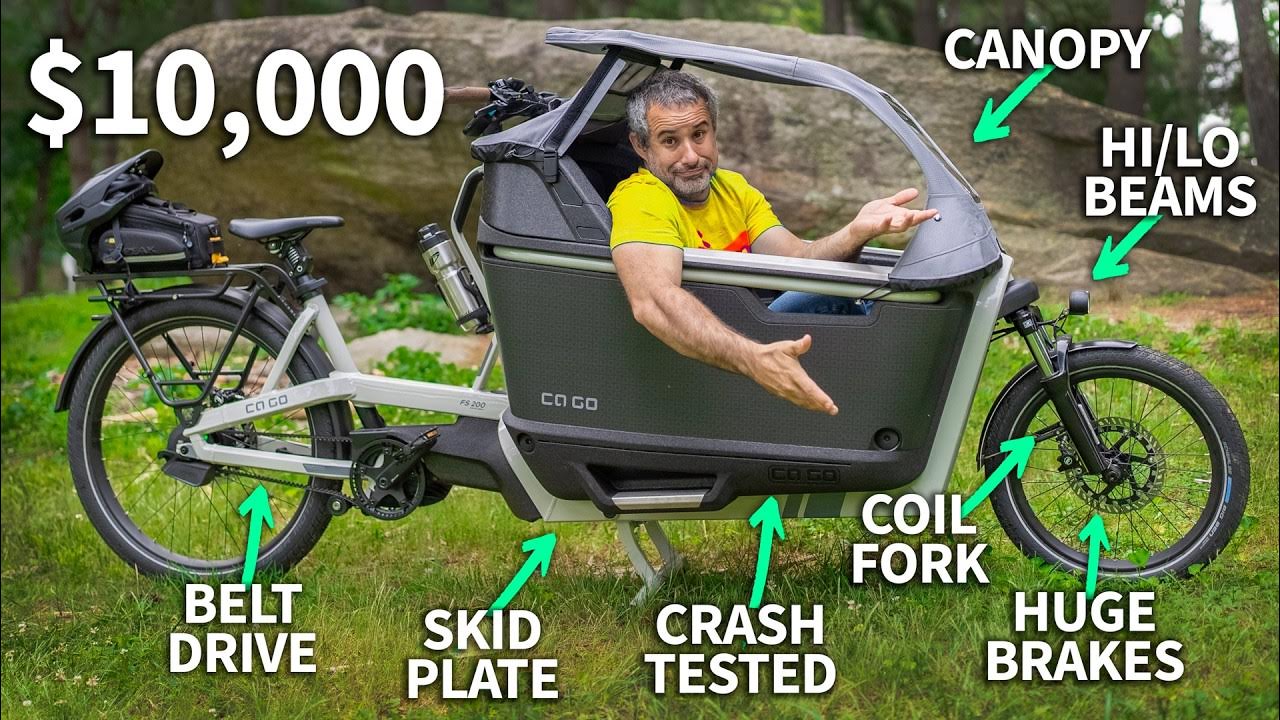That downhill ride with basket full of gravel was sketchy as fuck.
well shit, now I have to watch the video.
Same. The video showed up on my feed on Nebula earlier, but I hadn’t gotten around to watching it yet.
I think I would have wimped out and bailed. Sketchy indeed.
Hub motors with regenerative breaking (grin tech) are far superior to mid drive for any type of cargo bike.
Hub motors have the tradeoff of not being able to benefit from gearing. So while cargo bikes aren’t really built for speed records, gearing with a mid-drive should allow for climbing hills with a heavier payload, all else the same.
In this video’s case, I shudder to imagine how much a hub motor would struggle to climb a hill with 200+ kg of payload. With a mid-drive, I’m still somewhat concerned, but lesser so.
But I do agree regenerative braking would be nice for downhills. To that end, I would prefer to see a mid-drive cargo bike with a hub motor on the front wheel, for a small boost to acceleration but a huge advantage for conserving energy. Alternatively, an Eddy current hub brake would suffice, still on the front wheel, which would only provide braking but would be electronically modulatable and can dissipate more energy before fading, essentially limited only by the melting temperature.
Will “pumping the brakes” help anyway?
No, that’s done to prevent the wheels from locking up and to maintain the ability to steer on cars without ABS. In this case the brakes simply were too small for the load. It’s too much heat for them to deal with.
After watching the video on Nebula, I think it’s fair to say that this is a very comprehensively-designed e-cargo bike, built to answer just about every concern that a prospective suburbanite might have, if considering replacing it as a bonafide car-replacement. This is a very German product lol
The price tag also comports with being German, which is what might put the brakes – pun intended – on mass adoption. But neither are Mercedes-Benz S-class sedans meant for mass adoption: it’s built for a specific purpose, and would excel at that task.
There will be buyers who look for a fully-integrated ebike solution, such as the rain cover and child safety design, and this isn’t unreasonable since cars – in the USA market anyway – offer a plausible solution for all weather situations. So I’m glad someone has taken up an A-to-z approach to consumer demand.
That said, 55 kg (121 lbs) empty is slightly concerning, whereas a RadWagon 5 weights in at 39 kg (86 lbs). Then again, as the video showed, it will move 270 kg (600 lbs) of payload in a reasonably stable configuration, albeit with some risk of cooking the brakes. That’s incredible, since the same payload in an unbraked bike trailer would be essentially unroadworthy.
I suppose it’s worth a reminder that if approaching a steep downhill section – car or bike – at speed, the correct approach is to brake firmly in a short burst then coast, rather than dragging the brakes all the way down. This is because brake fade will soon reduce stopping effectiveness, which could result in a runaway condition. Whereas coasting after firm deceleration lets the brakes cool down in the wind.
Cars can change gears into low to reduce building further speed, but bikes will just have to carefully manage speed and brakes, moreso for heavily-laden cargo bikes. That said, bikes have separate controls for each wheel, so can optimize using one brake while the other cools.
I don’t expect to ever see a “runaway bike lane” in my lifetime.
Weird video. The price point and design has already been proven, there’s no question who the market is for.



